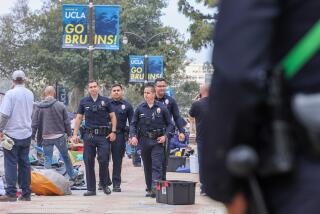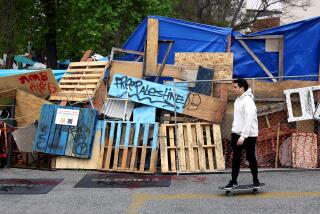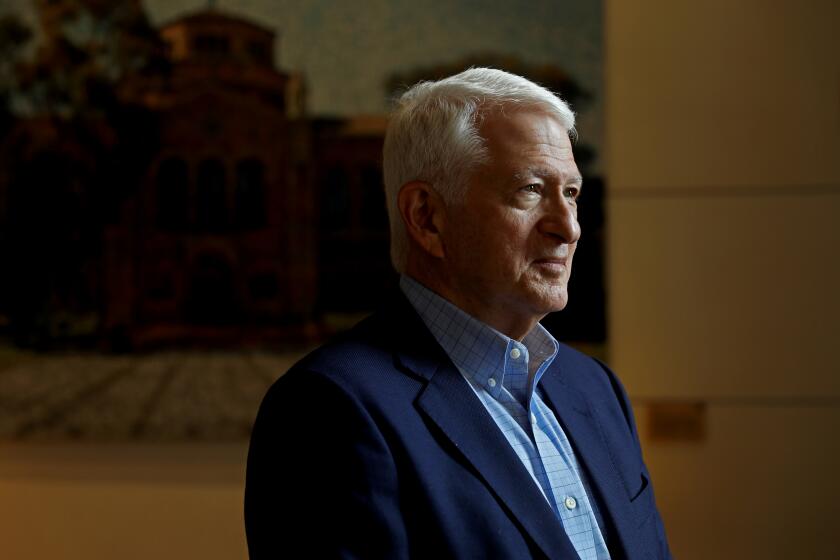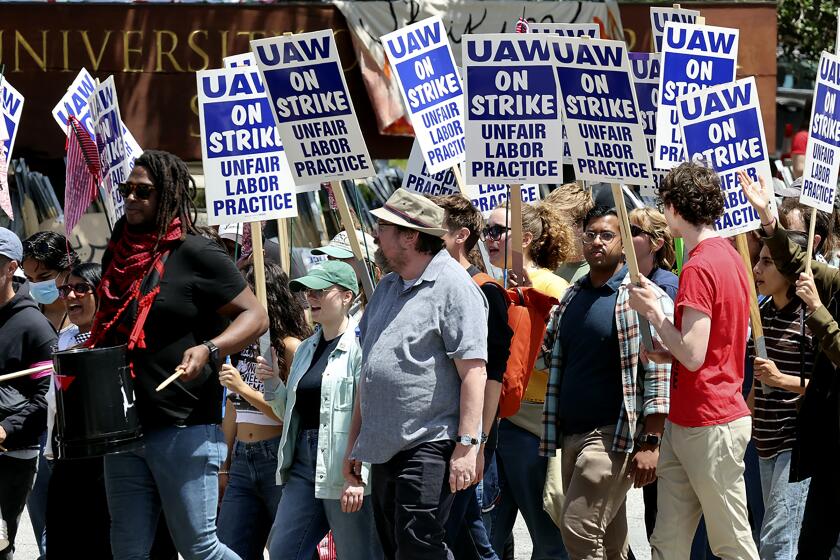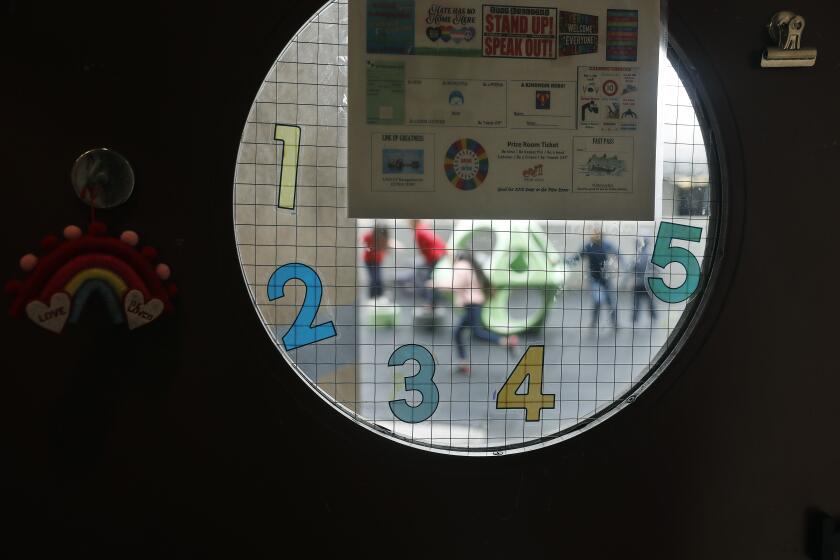Students at CSU Cite Problems : Education: Survey shows highest level ever of those who fear lack of money, lowest rating ever over class availability.
After years of tuition hikes and budget turmoil, record numbers of students in California’s state university system are complaining that they face major problems finding the money to stay in college and getting the classes they need to graduate, a new state survey has found.
Although student satisfaction with instructional quality remained strong, the share of Cal State students who fear that they might not have enough money to continue their education has risen to 37%, the highest level ever recorded, according to the system’s latest student survey.
Likewise, student satisfaction with the convenience of their class schedules dropped to 30%, the lowest rating ever recorded. And students gave a similarly poor rating to the availability of necessary classes, even though that and class-schedule convenience ranked among their highest priorities.
“I think we should be pleased with the expression of satisfaction with the quality of our offerings,” said Peter Hoff, the Cal State system’s senior vice chancellor for academic affairs. “But we also have a lot of students who feel they can’t make the progress they want toward their degrees.”
Of the more than 1,000 Cal State Fullerton students surveyed, 77% believed the quality of their instruction was good or excellent. But fewer than three in 10 said their classes were conveniently scheduled, compared with more than four in 10 who were satisfied with the timing of class offerings in 1989.
Cal State Fullerton students also appear to have felt the pinch on their pocketbooks, according to the survey.
About 77% of Cal State Fullerton students said in 1994 that they were “somewhat,” “very” or “extremely” concerned about how to finance their college educations, compared with 66% of students in the previous survey.
Consistent with Cal State Fullerton’s identity as a commuter school, the survey indicates Fullerton’s students are less concerned than other Cal State collegians about campus social activities, counseling and recreation.
“What they care about are the bookstore, admissions, publications, financial aid, the quality of instruction, getting the classes they need and the faculty,” said Dolores Vura, director of analytical studies at Cal State Fullerton. “As time has gone on and we’ve become shorter on money, these basic needs are more important.”
About 43% of Cal State Fullerton students said they were satisfied with the size of their classes in 1994, down sharply from the 53% of students who felt that way in 1989.
Cal State officials, who will report the results Tuesday at the system’s board of trustees’ meeting in Long Beach, said they were not sure why more students are unhappy with class issues, since schedules have changed appreciably over the years. But they called the affordability findings a clear result of years of steady Cal State tuition increases.
More than 15,000 students statewide were surveyed a year ago. The study’s just-tallied results are the first look at how the strains caused by the recession in recent years have affected students’ perceptions of the Cal State system, the nation’s largest network of universities.
The survey results were drawn from 19 of the system’s 21 campuses. Data from Cal State Northridge, where the survey was not conducted until this past fall because of the January, 1994, earthquake, will be added later. And the system’s newest campus, Monterey Bay, will not have students until this fall.
Not all the news was bad. About three-quarters of the surveyed students rated the quality of instruction in the Cal State system--their highest priority--as good or excellent. That is about the same level as in the last survey, in 1989, and higher than earlier ones in 1981 and 1984.
But adding in the increasing negatives such as affordability and class issues, the share of students pleased with their overall campus experience dropped. About two-thirds of students were satisfied overall, down from the low 70% levels in 1989 and 1984, and 77% in 1981.
In what Cal State officials called a “disturbing trend,” 83% of the students surveyed reported experiencing personal or campus-related obstacles to achieving their educational goals, typically earning a degree. That is up sharply from the 65% to 70% figures in prior surveys.
The previous surveys did not ask about class availability. But the share of students satisfied with class scheduling continued its steady decline. The numbers have dropped from 48% in 1981, to 43% in 1984, to 39% in 1989, before hitting the 30% mark in the latest survey.
On the personal side, affordability was the major factor. The 37% of students who said they would not or might not have enough money to remain in school also was a substantial increase from percentages in the low-to-mid 20s in the previous surveys. State tuition and fees now run an average of $1,853 a year.
More to Read
Start your day right
Sign up for Essential California for news, features and recommendations from the L.A. Times and beyond in your inbox six days a week.
You may occasionally receive promotional content from the Los Angeles Times.
